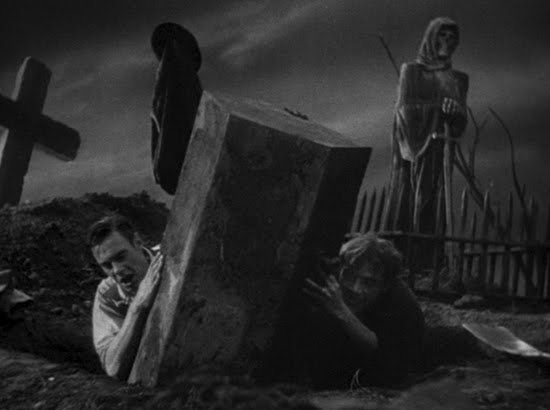Human cadavers are a legitimate market? Sure. Commerce in human cadavers was created centuries ago and is done now by medical schools because of the need to train future doctors in anatomy, requiring the dissection of a cadaver. Finding an adequate supply of cadavers is an ongoing challenge, one which has been answered by both academically-housed programs and by independent, for- and non-profit ventures that are not affiliated with higher education or research institutions.
And we have all seen "Frankenstein" - sometimes small business owners get involved.

Frankenstein 1931. An example of an immoral way to conduct trade.
To understand how the commerce in cadavers operates, and how markets are rendered moral or immoral, researchers visited and observed programs, interviewing almost fifty cadaver market participants. Then the data was analyzed in-depth.
The research found that cadaver marketing professionals rely on narrative distinctions to differentiate their own pursuit from alternative spheres of commerce. Additionally, as a way to build legitimacy into their industry, they endorse proper practices, while discouraging what they consider inappropriate cadaver trading, including charging procurement fees in excess of actual costs and acquiring cadavers through families' consent instead of the actual donor's consent.
The study challenges the usual view on morals and markets by shifting the focus of moral assessment away from the good itself toward the practice of trade. This study showed that how trades are conducted can also render markets moral. Assuming that proper practices of trade can be enforced, the focus on categories of goods might give way to a more practice-based view of moral markets—one relying on practices of trade to guide moral action.
"Though commerce in cadavers is an extreme setting in which to study markets," concludes the author of the study in Administrative Science Quarterly, Harvard University's Michel Anteby, "the relationship between practices of trade and morality is likely to apply to other markets as well. The category of traded goods is generally considered when assessing a market's moral legitimacy, but it only constitutes a starting point. A market's legitimacy is also defined by how trades are conducted."




Comments